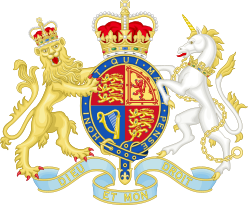| Supreme Court of Newfoundland and Labrador | |
|---|---|
 The Royal Arms as used by the Supreme Court [1] | |
 | |
| Established | 1730 |
| Jurisdiction | Newfoundland and Labrador |
| Composition method | appointed by the federal government |
| Authorised by | All criminal and civil proceedings [2] |
| Appeals to | Court of Appeal of Newfoundland and Labrador |
| Judge term length | mandatory retirement by age of 75 |
| Number of positions | 27 |
| Website | court |
| Chief Justice of the Supreme Court | |
| Currently | Raymond P. Whalen |
| Since | 11 December 2014 |
The Supreme Court of Newfoundland and Labrador is the superior court for the Canadian province of Newfoundland and Labrador. The Supreme Court has jurisdiction to hear appeals in both criminal and civil matters from the Provincial Court and designated boards and administrative tribunals. The court also hear serious criminal cases in the first instances, matters of probate, and family law matters.
Contents
The Supreme Court consists of 28 judicial seats including the position of Chief Justice. Of the current justices, 8 sit with supernumerary status. [3]
